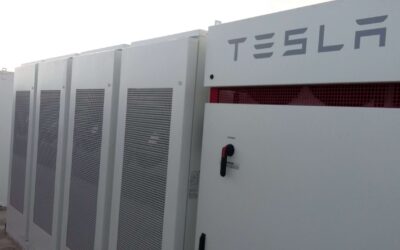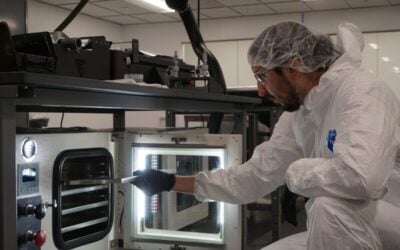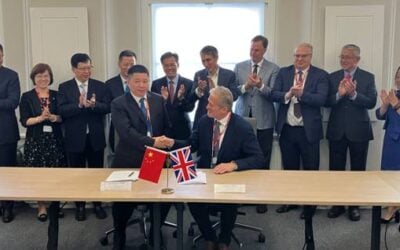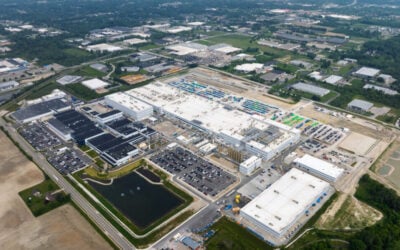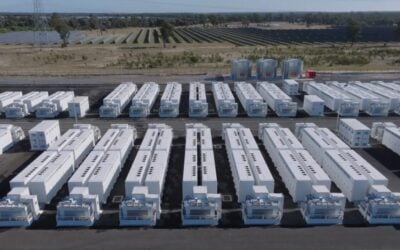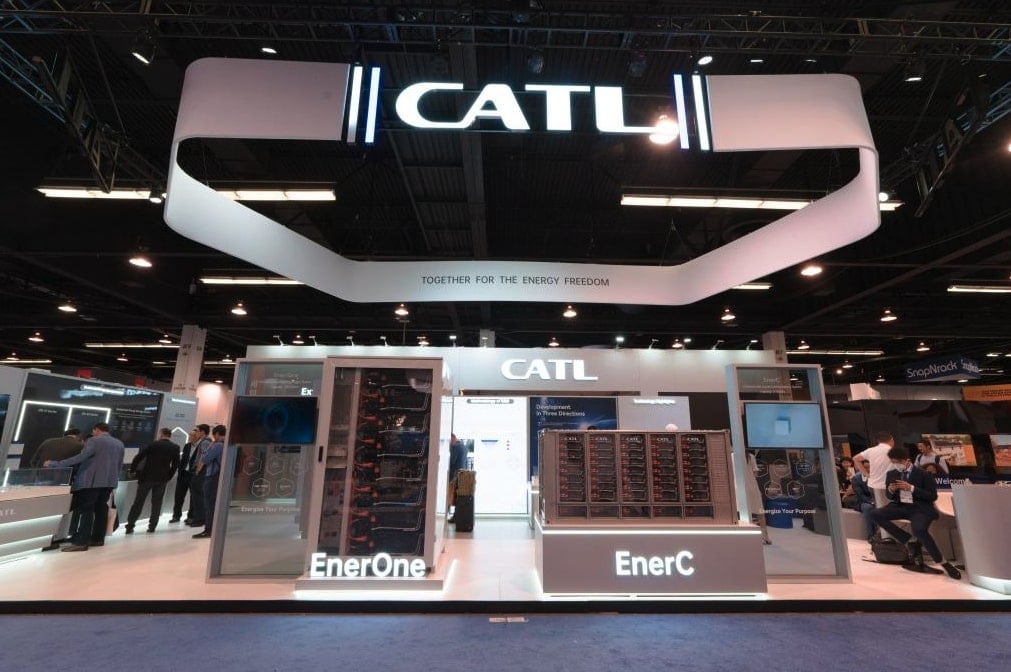
US lawmakers have accused lithium-ion battery OEMs CATL and Gotion High-Tech of having supply chain connections to forced labour and Uyghur oppression in China – a claim the firms adamantly deny – and called on an immediate block on shipments of their products.
The Republican-led US House Select Committee on the Chinese Communist Party (CCP) claimed to have found new evidence implicating the two companies in CCP state-sponsored slave labour and Uyghur minority human rights abuses in letters to the Department of Homeland Security last week (6 June).
Enjoy 12 months of exclusive analysis
- Regular insight and analysis of the industry’s biggest developments
- In-depth interviews with the industry’s leading figures
- Annual digital subscription to the PV Tech Power journal
- Discounts on Solar Media’s portfolio of events, in-person and virtual
The letters were co-signed by Senator Marco Rubio and House of Representatives members John Moolenaar, Mark Green, Carlos Gimenez and Darin LaHood. The letters detailed numerous alleged ‘deep’ supply chain links between both CATL and Gotion to “the most troubling Chinese organisations involved in the enslavement of Uyghur Muslims in Xinjiang”, the committee said.
The letters called for the department to immediately blacklist CATL and Gotion and block shipments of their products into the US.
The two companies are major manufacturers of lithium-ion batteries as well as containerised battery energy storage system (BESS) units, with CATL the biggest in the world for batteries and one of the biggest for BESS.
CATL and Gotion deny allegations
In its response, CATL denied the allegations: “A June 5 letter by U.S. Members of Congress, accusing CATL of having connections to forced labor, is groundless and completely false. It cites information about suppliers in an inaccurate and misleading way.
“With some suppliers quoted in the letter, business relations ceased long ago. With other suppliers, business relations have been conducted with different subsidiaries and with absolutely no connection to forced labor or anything that violates U.S. applicable laws and regulations. With still others, we have never procured any products from them and the cited information is simply wrong and misguided.
“CATL is in strict compliance with all applicable laws and regulations with respect to its operations and business activities in the US”
Gotion meanwhile told Chinese state-owned outlet Yicai that the “claims were completely unfounded and absolutely wrong” and that it “has always respected human rights and protected the rights of employees”, the outlet reported today.
See the full Select Committee letters on CATL (here) and Gotion (here), and CATL’s full response (here).
Ramping up of existing trade war
The allegations come amidst a ratcheting up of protectionist measures by the US towards China, particularly in the clean energy technology space.
Last month, the US tripled import tariffs on lithium-ion battery imports from China (as well as solar technology and other industrial products) effective for battery energy storage systems (BESS) from 2026. The move, which garnered a mixed reaction from industry sources, will increase the cost of BESS in the US by 11-16% according to consultancy Clean Energy Associates.
And around the turn of 2023/24, a CATL BESS unit was disconnected at a US Marine Corps facility shortly before being removed entirely under pressure from US lawmakers who have accused CATL of being funded by and enjoying the support of the CCP.
In addition, CATL has recently tweaked its ownership structure to reduce its shareholding by executives that are also members of the CPP in order to mitigate against being a ‘Foreign Entity of Concern’ (FEOC), according to analysis by consultancy CRU Group. Being an FEOC would mean its cells would not be able to qualify for tax credit incentives under the Inflation Reduction Act (IRA).
Energy-Storage.news’ publisher Solar Media will host the 2nd Energy Storage Summit Asia, 9-10 July 2024 in Singapore. The event will help give clarity on this nascent, yet quickly growing market, bringing together a community of credible independent generators, policymakers, banks, funds, off-takers and technology providers. For more information, go to the website.

